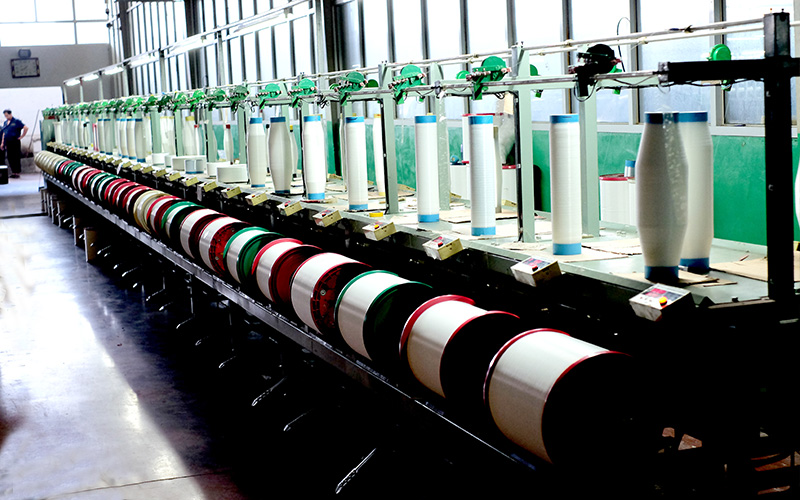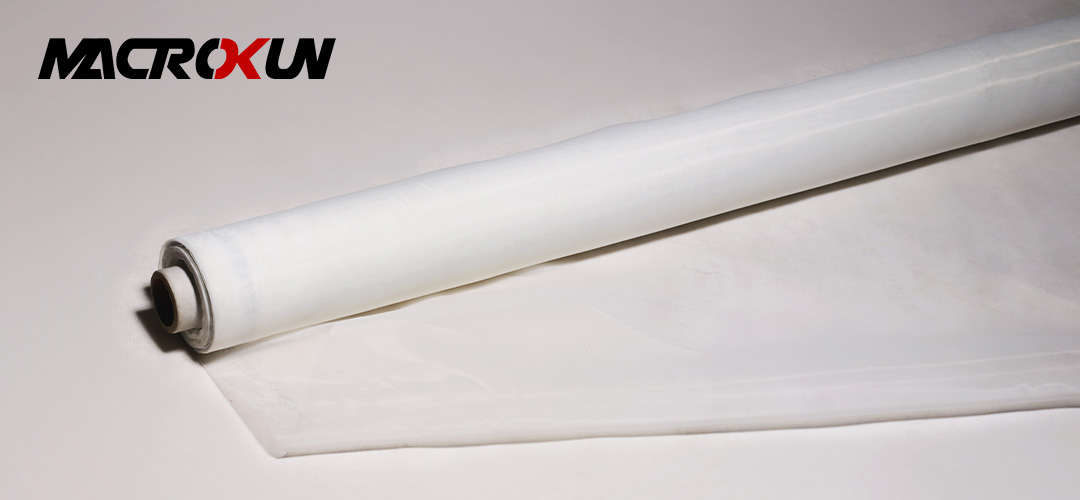When it comes to heavy-duty applications, having the right equipment is crucial to ensure safety and efficiency. One essential component that is often overlooked is strong nylon netting. Nylon netting is a versatile material that offers a wide range of benefits for various applications, especially those that require durability and strength.
One of the primary benefits of using strong nylon netting for heavy-duty applications is its high tensile strength. Nylon is known for its exceptional strength-to-weight ratio, making it an ideal choice for applications that require a material that can withstand heavy loads and high impact forces. Whether you are securing cargo on a truck bed or creating a barrier for construction sites, nylon netting can provide the strength and durability needed to get the job done.
In addition to its strength, nylon netting is also highly resistant to abrasion and wear. This makes it an excellent choice for applications where the netting will be exposed to harsh conditions, such as outdoor environments or industrial settings. Nylon netting can withstand constant friction and contact with rough surfaces without deteriorating, ensuring that it remains in top condition for an extended period of time.
Furthermore, nylon netting is resistant to UV rays and moisture, making it suitable for outdoor applications where exposure to the elements is a concern. Unlike other materials that may degrade or weaken when exposed to sunlight or water, nylon netting maintains its strength and integrity, making it a reliable choice for outdoor use.
Another benefit of using strong nylon netting for heavy-duty applications is its versatility. Nylon netting comes in a variety of mesh sizes and strengths, allowing you to choose the right type of netting for your specific needs. Whether you need a fine mesh for containing small objects or a larger mesh for securing larger items, nylon netting can be customized to meet your requirements.
Additionally, nylon netting is lightweight and easy to handle, making it convenient to transport and install. This is especially important for applications that require frequent setup and takedown, as nylon netting can be quickly deployed and removed as needed. Its lightweight nature also makes it easier to work with, reducing the strain on workers and improving overall efficiency.
Overall, strong nylon netting is an excellent choice for heavy-duty applications that require durability, strength, and versatility. Its high tensile strength, resistance to abrasion and wear, and ability to withstand UV rays and moisture make it a reliable option for a wide range of applications. Whether you are securing cargo, creating barriers, or protecting equipment, nylon netting can provide the strength and durability needed to get the job done effectively. With its lightweight nature and ease of handling, nylon netting is a practical solution for any heavy-duty application that requires a strong and reliable material.
Heavy-duty nylon netting is a versatile material that finds applications in a wide range of industries. Its strength, durability, and flexibility make it an ideal choice for various heavy-duty applications. In this article, we will explore some of the top industries that rely on heavy-duty nylon netting for their operations.
One of the primary industries that heavily rely on heavy-duty nylon netting is the fishing industry. Nylon netting is commonly used in fishing nets to catch fish in large quantities. The strength and durability of nylon make it an excellent choice for withstanding the harsh conditions of the open sea. Fishermen depend on nylon netting to ensure a successful catch and a profitable day out on the water.
Another industry that makes extensive use of heavy-duty nylon netting is agriculture. Nylon netting is used in agricultural applications such as crop protection, animal enclosures, and even as shade structures. The strength of nylon netting allows it to withstand the elements and protect crops from pests and harsh weather conditions. Farmers rely on nylon netting to ensure the success of their crops and livestock.

The construction industry is another sector that relies on heavy-duty nylon netting for various applications. Nylon netting is commonly used in construction sites to provide safety barriers, debris containment, and even as scaffolding. The strength and durability of nylon netting make it an essential material for ensuring the safety of workers and the public on construction sites.
The automotive industry also makes use of heavy-duty nylon netting in various applications. Nylon netting is used in car seats, airbags, and even as a protective barrier in vehicles. The strength and flexibility of nylon make it an ideal material for ensuring the safety and comfort of passengers in vehicles.
The sports industry is another sector that relies on heavy-duty nylon netting for various applications. Nylon netting is commonly used in sports equipment such as goal nets, batting cages, and even as safety barriers in stadiums. The strength and durability of nylon make it an essential material for ensuring the safety and success of athletes in various sports.
In the manufacturing industry, heavy-duty nylon netting is used in various applications such as filtration, conveyor belts, and even as protective barriers. The strength and flexibility of nylon make it an ideal material for withstanding the harsh conditions of manufacturing processes and ensuring the efficiency of operations.
Overall, heavy-duty nylon netting is a versatile material that finds applications in a wide range of industries. Its strength, durability, and flexibility make it an essential material for ensuring the success and safety of operations in various sectors. Industries such as fishing, agriculture, construction, automotive, sports, and manufacturing heavily rely on heavy-duty nylon netting for their operations. As technology continues to advance, the demand for heavy-duty nylon netting is expected to grow, making it an essential material for various industries in the future.
When it comes to heavy-duty applications that require strong and durable materials, nylon netting is often the go-to choice for many industries. Nylon netting is known for its high tensile strength, abrasion resistance, and durability, making it ideal for a wide range of applications where strength and reliability are essential.
One of the most common uses for nylon netting in heavy-duty applications is in the construction industry. Construction sites often require safety netting to protect workers and pedestrians from falling debris or equipment. Nylon netting is strong enough to withstand heavy impacts and can provide a reliable barrier to prevent accidents and injuries on the job site.
Another popular application for nylon netting is in the agricultural industry. Nylon netting is commonly used in crop protection, animal containment, and aquaculture. In crop protection, nylon netting can be used to create barriers to keep pests and birds away from crops, while still allowing sunlight and water to reach the plants. In animal containment, nylon netting can be used to create enclosures for livestock or poultry, providing a safe and secure environment for the animals. In aquaculture, nylon netting is used to create cages and pens for fish farming, allowing for efficient and sustainable production of seafood.
In the sports and recreation industry, nylon netting is often used for applications such as sports netting, barrier netting, and cargo netting. Sports netting is commonly used in sports facilities, stadiums, and gyms to create boundaries for games such as soccer, baseball, and tennis. Barrier netting is used to create safety barriers in golf courses, driving ranges, and amusement parks to protect players and spectators from stray balls or objects. Cargo netting is used in transportation and logistics to secure and protect cargo during transit, ensuring that it arrives at its destination safely and intact.
When choosing the right nylon netting for your heavy-duty needs, there are several factors to consider. The first factor to consider is the mesh size of the netting. The mesh size will determine the level of protection and containment that the netting can provide. For applications where small objects need to be contained, a smaller mesh size is recommended. For applications where larger objects need to be contained, a larger mesh size may be more suitable.
| Type | Mesh Count (/cm) |
Mesh Count (/inch) |
Thread Dia (um) |
Mesh Opening (um) |
Thickness (um) |
Gross Weight (g/m2) |
| NL4/1950 | 4 | 10 | 550 | 1950 | 1100 | 307 |
| NL5/1500 | 5 | 13 | 500 | 1500 | 1000 | 318 |
| NL6/1267 | 6 | 15 | 400 | 1267 | 800 | 244 |
| NL7/1079 | 7 | 18 | 350 | 1079 | 700 | 218 |
| NL8/900 | 8 | 20 | 350 | 900 | 700 | 249 |
| NL9/861 | 9 | 23 | 250 | 861 | 500 | 143 |
| NL9/811 | 9 | 23 | 300 | 811 | 600 | 206 |
| NL10/750 | 10 | 25 | 250 | 750 | 500 | 159 |
| NL10/700 | 10 | 25 | 300 | 700 | 600 | 229 |
| NL12/583 | 12 | 30 | 250 | 583 | 500 | 191 |
| NL12/533 | 12 | 30 | 300 | 533 | 600 | 274 |
| NL14/514 | 14 | 36 | 200 | 514 | 340 | 142 |
| NL16/425 | 16 | 40 | 200 | 425 | 340 | 160 |
| NL20/350 | 20 | 50 | 150 | 350 | 255 | 113 |
| NL20/300 | 20 | 50 | 200 | 300 | 340 | 200 |
| NL24/267 | 24 | 60 | 150 | 267 | 255 | 135 |
| NL28/237 | 28 | 70 | 120 | 237 | 204 | 101 |
| NL30/213 | 30 | 76 | 120 | 213 | 204 | 110 |
| NL32/213 | 32 | 80 | 100 | 213 | 170 | 80 |
| NL36/178 | 36 | 90 | 100 | 178 | 170 | 90 |
| NL40/150 | 40 | 100 | 100 | 150 | 170 | 100 |
| NL43/153 | 43 | 110 | 80 | 153 | 136 | 70 |
| NL48/128 | 48 | 120 | 80 | 128 | 136 | 77 |
| NL56/119 | 56 | 140 | 60 | 119 | 102 | 50 |
| NL64/96 | 64 | 160 | 60 | 96 | 102 | 58 |
| NL72/89 | 72 | 180 | 50 | 89 | 85 | 45 |
| NL80/75 | 80 | 200 | 50 | 75 | 85 | 50 |
| NL100/57 | 100 | 250 | 43 | 57 | 73 | 46 |
| NL110/48 | 110 | 280 | 43 | 48 | 73 | 52 |
| NL120/48 | 120 | 300 | 35 | 48 | 60 | 37 |
| NL120/40 | 120 | 300 | 43 | 40 | 73 | 55 |
| NL130/42 | 130 | 330 | 35 | 42 | 60 | 40 |
| NL130/34 | 130 | 330 | 43 | 34 | 73 | 61 |
| NL140/36 | 140 | 350 | 35 | 36 | 60 | 43 |
| NL157/25 | 157 | 400 | 43 | 25 | 73 | 74 |
| NL180/20 | 180 | 450 | 39 | 20 | 66 | 68 |
| NL200/15 | 200 | 500 | 39 | 15 | 66 | 76 |
| NL220/10 | 220 | 550 | 39 | 10 | 66 | 84 |
| NL240/5 | 240 | 600 | 39 | 5 | 66 | 91 |
Another factor to consider is the tensile strength of the netting. The tensile strength will determine how much weight and force the netting can withstand before breaking or stretching. For heavy-duty applications, it is important to choose nylon netting with a high tensile strength to ensure that it can withstand the demands of the job.
In addition to mesh size and tensile strength, it is also important to consider the UV resistance and chemical resistance of the nylon netting. UV resistance will ensure that the netting can withstand prolonged exposure to sunlight without degrading or weakening. Chemical resistance will ensure that the netting can withstand exposure to harsh chemicals or environmental conditions without deteriorating.
Overall, nylon netting is a versatile and reliable material that is well-suited for a wide range of heavy-duty applications. By considering factors such as mesh size, tensile strength, UV resistance, and chemical resistance, you can choose the right nylon netting for your specific needs and ensure that it provides the strength and durability required for your application.
Nylon netting is a versatile material that is commonly used in a wide range of applications, from fishing to sports to industrial settings. Its strength, durability, and flexibility make it an ideal choice for many different uses. However, when it comes to heavy-duty applications, not all nylon netting is created equal. In order to ensure that your nylon netting can withstand the demands of heavy-duty use, it is important to choose a high-quality, strong nylon netting that is specifically designed for heavy-duty applications.
One of the most common heavy-duty applications for nylon netting is in the construction industry. Construction sites often require the use of nylon netting to provide safety barriers, protect workers from falling debris, and secure materials on scaffolding. In these applications, the nylon netting must be able to withstand high winds, heavy loads, and constant exposure to the elements. Choosing a strong nylon netting that is specifically designed for construction applications is essential to ensuring the safety and efficiency of the job site.

Another heavy-duty application for nylon netting is in the transportation industry. Cargo nets are commonly used to secure loads on trucks, trailers, and ships, and must be able to withstand the rigors of long-distance travel, rough roads, and inclement weather. In these applications, the strength and durability of the nylon netting are crucial to ensuring that the cargo remains secure and undamaged during transit. Choosing a high-quality nylon netting that is designed for heavy-duty transportation applications is essential to protecting both the cargo and the vehicle.
In the agricultural industry, nylon netting is often used to protect crops from pests, birds, and other threats. In these applications, the nylon netting must be able to withstand constant exposure to sunlight, rain, and wind, as well as the weight of heavy fruits and vegetables. Choosing a strong nylon netting that is specifically designed for agricultural applications is essential to ensuring the success of the crop protection efforts.

When it comes to maintenance tips for ensuring the longevity of nylon netting in heavy-duty applications, there are several key factors to consider. First and foremost, it is important to regularly inspect the nylon netting for signs of wear and tear, such as fraying, tears, or holes. If any damage is found, it should be repaired or replaced immediately to prevent further deterioration.
Additionally, it is important to clean the nylon netting regularly to remove dirt, debris, and other contaminants that can weaken the material over time. Using a mild detergent and warm water, gently scrub the nylon netting and rinse thoroughly to ensure that all residue is removed. Avoid using harsh chemicals or abrasive cleaners, as these can damage the nylon fibers and reduce the strength and durability of the netting.
Finally, it is important to store the nylon netting properly when not in use. Keep the netting in a cool, dry place away from direct sunlight and moisture to prevent mold, mildew, and other damage. If possible, store the netting in a protective cover or container to prevent it from being damaged by other objects or pests.
By following these maintenance tips and choosing a high-quality, strong nylon netting that is specifically designed for heavy-duty applications, you can ensure that your nylon netting will provide reliable performance and durability for years to come. Whether you are using nylon netting in construction, transportation, agriculture, or any other heavy-duty application, taking care of your netting will help you get the most out of this versatile and valuable material.
Pre: Industries That Rely on Nylon Mesh 200 Micron for Consistent Results
Next: Choosing the Right Nylon Mesh Sheet for Your Specific Needs

MACROKUN has established long-term and stable cooperative relations with many transportation companies such as China Post, DHL, FEDEX, USPS, UPS, etc. Of course, MACROKUN can also provide air and sea transportation. The powerful logistics system enables all MACROKUN'S Printing Mesh, Filter Mesh and Filter Bags and so on to be easily and efficiently transported to any place. For quotes and inquiries, please email our sales team.





